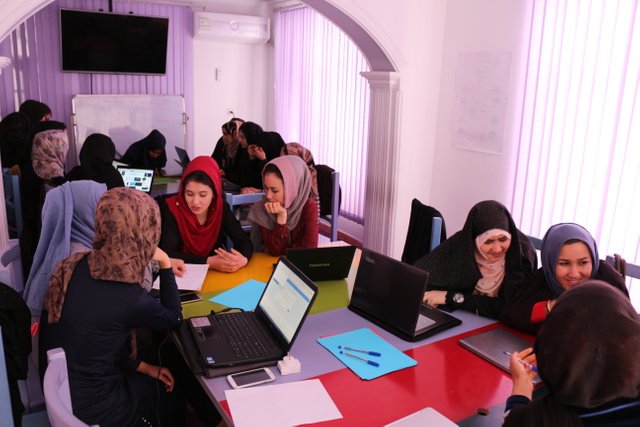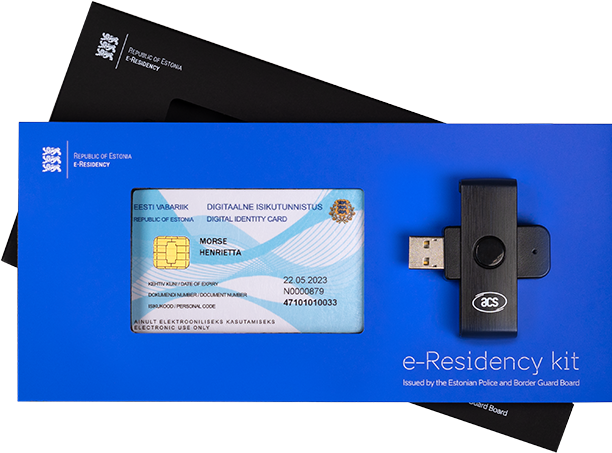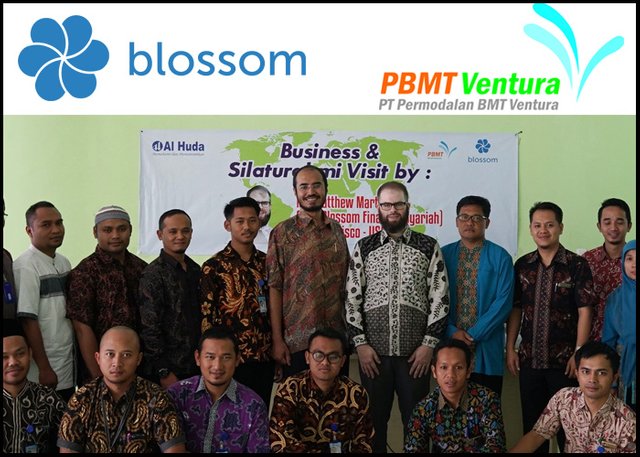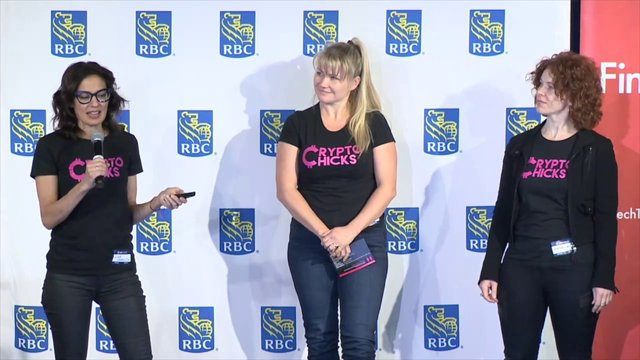
Making the world a better place with blockchain
A lot of intelligent people and blockchain industry thought-leaders have extolled the virtues of blockchain’s unique characteristics, and the positive impact the technology will have on society. It’s often about making profitable trades and taking advantage of cryptocurrency’s legendary volatility, but there are social benefits to blockchain that are often hidden behind financial interests and trading hype. Many have claimed that the decentralized, permissionless, trustless, and secure model of blockchain will be instrumental in disintermediating a wide array of existing institutions and industries.
This is expected to create a more transparent and efficient way of doing things, which would level the playing field for many of the most disenfranchised groups in society. In addition to blockchain, the UN is prioritizing sustainable development under the UN Development Program (UNDP). The UNDP has a list of 17 sustainable development goals to be implemented by 2030. These sustainable development goals include such hot-button issues as ending poverty, improving access to education and healthcare globally, ending hunger, gender equality, women’s empowerment as well as many others.
Corporate social responsibility (CSR) has been one of the most high-profile developments in modern capitalism. CSR started out as an internal policy implemented by companies that wanted to “give-back”, so to speak. CSR is an ethical framework for businesses which requires them to act in a sustainable and responsible manner. CSR is typically a self-imposed internal policy or set of guidelines, but we have seen the creation of sympathetic legislation and industry -wide participation in some industries. Sectors like the environment, or energy have enthusiastically embraced CSR policies.
Due to blockchain’s immutability, transparency, and accountability, it has been suggested as an excellent tool for implementing and enforcing CSR policies across a wide range of industries which could benefit from sustainable practices. Today we’ll be taking a look at 5 of the most promising CSR blockchain projects. These are projects using blockchain for positive social impact and sustainability.
Blockchains for Social Responsibility and Sustainable Development
Code to Inspire

Code to Inspire is the first coding academy for young women in Herat, Afghanistan. It teaches girls in Afghanistan important development skills like writing code, building desktop and mobile apps, graphic design, and assists them with finding employment opportunities. So far over 150 Afghan women have attended the school. 25 women have graduated already, and code to inspire also provides support for student projects. The women can work on the student projects and also outsource their skills to paying clients.
“Code to Inspire pays the women in the academy in cryptocurrency to teach them about financial responsibility and self-sovereignty.” Paying them in cryptocurrency also alleviates some of the barriers in place to prevent these women from accessing the legacy financial system in an active conflict zone.
Bitcoin developer Jimmy Song has recently donated quite a few copies of his book “Programming Bitcoin” to the academy, in order to help the women learn to develop Bitcoin & Blockchain applications. Coinbase, the popular US cryptocurrency exchange, also recently featured Code to Inspire and its founder Fereshteh Forough in the Coinbase blog. Coinbase also worked on a pilot program with Code to Inspire to help them get paid in cryptocurrency.
Code to Inspire is one of the most exciting non-profit efforts using blockchain and cryptocurrency to help improve the lives of some of the most vulnerable women on earth. It helps them learn skills to become self-sufficient, independent, and to access opportunities in a global marketplace.
Kiva

Kiva is a non-profit micro-lending platform. It allows people to crowdfund small loans to entrepreneurs and others in the developing world. This allows these entrepreneurs to secure financing and access financial services that may not be available, or may be extremely difficult to access in their home country. With Kiva, you can lend as little as $25 USD, and they have a 96.9% repayment rate. Kiva has already issued over $1.3 Billion USD in loans. 100% of every dollar you loan goes to funding people in developing nations. Kiva has been active in 80 different nations, and is based in San Francisco, CA. They have additional offices in Bangkok, Nairobi, and Portland, OR.
Kiva has recently started work on a blockchain platform called the Kiva Protocol. Kiva’s blockchain will work to develop a decentralized identity (DID) system for their customers. They will use this DID to keep track of loans, credit ratings, payments and repayment of loans, in the 80 nations they currently serve. Kiva has already begun development of a real-world implementation of the Kiva Protocol in a partnership with the Sierra Leone government and the United Nations.
The World Bank, UNDP and the United Nations Capital Development Fund (UNCDF) are working with Kiva to provide financial inclusivity by digitizing the financial records of Sierra Leonians. They have already digitized the financial records of 5.1 million of the nation’s 7 million citizens. The biggest barrier to entry for participation in the global financial system is the lack of identification and the ability to verify identity. Kiva hopes that the Kiva protocol can change all this.
Estonian Government

I know that Estonia is a nation and not a company, but that being said, they are doing remarkable things with Blockchain. Estonia was the first EU nation to pilot an E-Residency program and E-governance. The citizens of Estonia have a DID which they can use to do almost anything online. They can use their DID to access their health records, to vote in the nation’s elections, to access school transcripts and grades, report automobile accidents, and many other services. Almost every digital service in Estonia is digitized and can be accessed with the DID, and Estonians can choose who they allow to access that data.
Benefits without Borders
Estonia’s E-residence program allows non-residents to apply for digital residency. This digital residency offers a lot of the blockchain and DID benefits enjoyed by Estonian citizens to E-residents.
This allows non-Estonians to start an Estonian business. Estonia is an EU nation, so your Estonian business would also enjoy all the benefits of an EU company. You do need to go to Estonia to set up a bank account and to get an Estonian mailing address, but afterwards your business and tax requirements could all be handled virtually from abroad.
This E-residency is different than attaining physical residency, so be aware that you won’t be able to legally move to Estonia with an E-residency. It is a great option for foreign companies that do a lot of business in EU markets. You can apply for E-residency online by providing ID and paying a small fee, but you will need to visit an Estonian consulate to make it official.
Blossom finance

Blossom Finance is a startup that is focused on providing blockchain-based Islamic financial services. Islamic banking is very different than the Western iteration of banking, in that it prohibits usury as part of its religious and moral code. Under Sharia, Riba or usury (lending money at interest) is considered immoral, so Islamic banks charge modest fees for their banking services rather than offering free services, and lending customer deposits at interest to generate a return for shareholders. Riba or lending for interest is seen as predatory to the poor, so Islamic lending alternatives are vital. This important to note, because 1 in 4 people worldwide are of the Islamic faith, so demand for these Sharia-compliant financial services is in high demand.
Blossom leverages blockchain for a transparent, secure, and accountable way to provide investment capital to small Islamic microfinance cooperatives. The finance is fully compliant with Sharia and uses smart sukuks (blockchain-based Islamic bonds) and Mudarabah (Islamic partnerships & profit-sharing agreements) to lend capital to entrepreneurs in developing Islamic communities. Blossom is providing ethical banking services to under-developed communities globally. It provides an incentive to create returns while still keeping fees affordable for the under-developed communities it serves.
Cryptochicks

Cryptochicks started as a meetup for a small group of Canadian women to get together and help each other learn about blockchain. It was wildly successful and has grown into a worldwide organization, conference and hackathon for women interested in Blockchain & AI. They now have chapters in the US, Russia, Canada, Pakistan and the Bahamas. Cryptochicks has become a an educational volunteer-run non-profit that holds educational events around the world teaching women skills in AI and blockchain. Cryptochicks events are a departure from the traditional blockchain event, in that a majority of the speakers and presenters are women in the industry.
Cryptochicks won Blockchain Company of the Year Award at the Canadian FinTech and AI Awards 2018. They also offer support to a variety of socially-conscious blockchain and AI projects, created by members. Projects like Digital Birth Stamp help document and register births of newborns in Tanzania, and TaskForce which is initiative to document evidence of sex crime on the blockchain, highlight the Cryptochicks commitment to social responsibility. Check out the Cryptochicks website for a list of upcoming hackathons and conference events around the world.
Conclusion
The coming of age of Millennials has inspired many of the most important industries to implement social responsibility policies or come under fire for questionable ethical and moral business practices. This has led to Millennial consumers choosing to abandon many of these products and services, and seeking out sustainable and ethical alternatives. As the disposable income of Millennials grows, their increasing purchasing power is influencing a massive paradigm shift. As their spending power grows, so does the impact they are having on the companies that want their business.
Many of these companies have taken a new approach to provide “fair trade” or ethical practices into their business models. Blockchain has naturally been seen as an immutable way to provide transparency and accountability to make sure these companies are honoring their commitments to CSR in actions as well as words. The companies which we have reviewed in this article are a direct manifestation of this psychological shift in sentiment. It is encouraging to see these enterprises taking CSR and sustainability seriously. It’s great to see blockchain be the instrument that they are choosing to make a positive social impact with.
Originally published at https://blog.hype.partners on June 27, 2019.